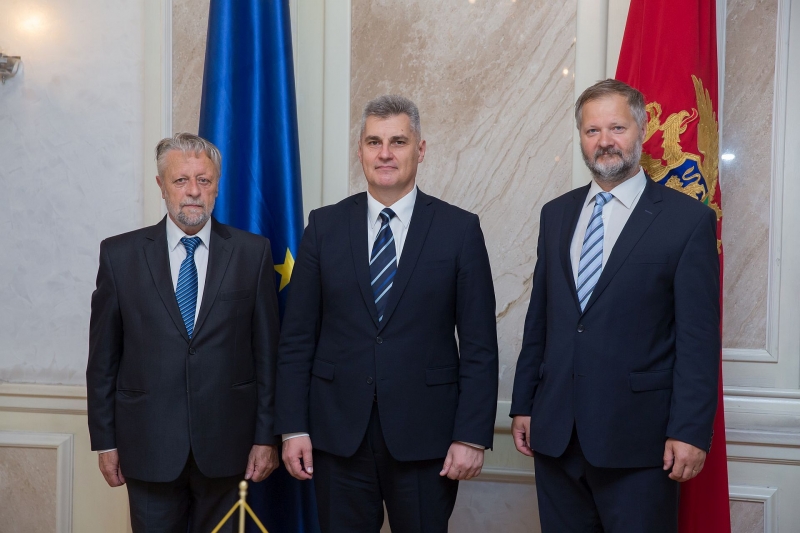Members of the delegation are also the following senators: Mr Jaroslav Doubrava, Mr Vladimír Plaček, Mr Libor Michálek, Mr Tomáš Czernin, Mr Zdeněk Brož, and Mr Lubomír Franc.
President of the Parliament of Montenegro Mr Ivan Brajović voiced his pleasure over the visit of the Czech senators to the Parliament of Montenegro and pointed out that it represented a contribution to further strengthening of parliamentary cooperation between Montenegro and the Czech Republic and a sign of strong support to the European and Euro-Atlantic integration of Montenegro.
The President of the Parliament of Montenegro voiced his conviction that, regardless of all the national turbulences and challenges faced by the European Union, the enlargement policy would remain high on the agenda, which was very significant for the credibility of the Union and long-term stability and prosperity of the Western Balkans region. Montenegro is working tirelessly on meeting the required standards for membership, and thus on improving the overall quality of life of its citizens. Mr Brajović pointed out that, after it became a member of the NATO family, Montenegro was even more strongly determined to persevere in reform activities, in order to complete the process of the accession negotiations in a quality manner and become the next EU member.
Montenegro’s NATO membership will have a positive effect on reform and integration processes in the neighbouring countries, primarily those who share the vision of integration in the Euro-Atlantic structures, said President Brajović.
The interlocutors emphasised that Montenegro and the Czech Republic had excellent interstate relations and meaningful cooperation, and that regular political and work contacts represented confirmation of a strong partnership and mutual determination for further strengthening of the overall cooperation in the context of European and Euro-Atlantic integration.
They jointly assessed that today’s visit of the Czech senators to the Parliament of Montenegro contributed to strengthening of interparliamentary cooperation, which, in the future, should result in new, stronger models of its improvement.












